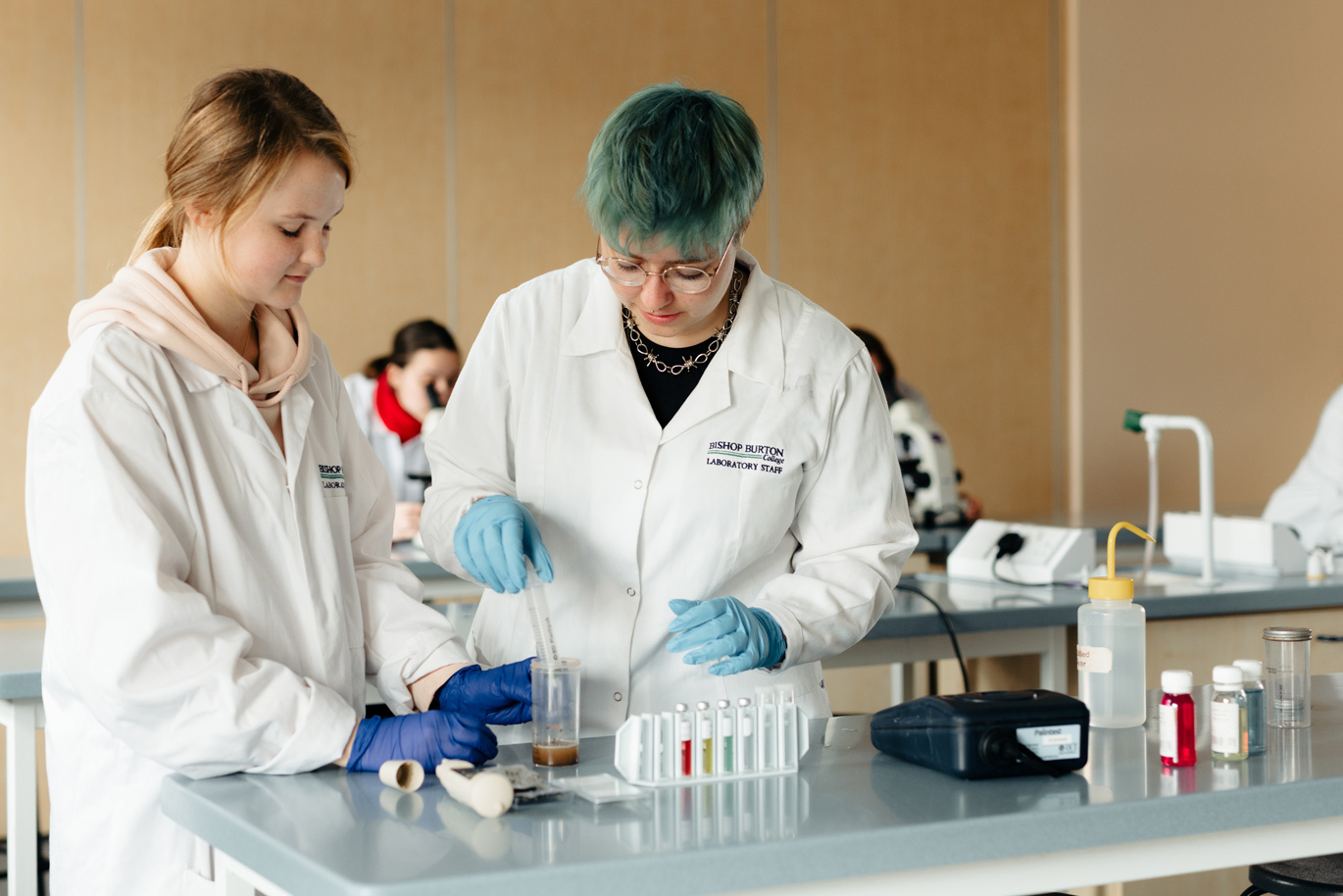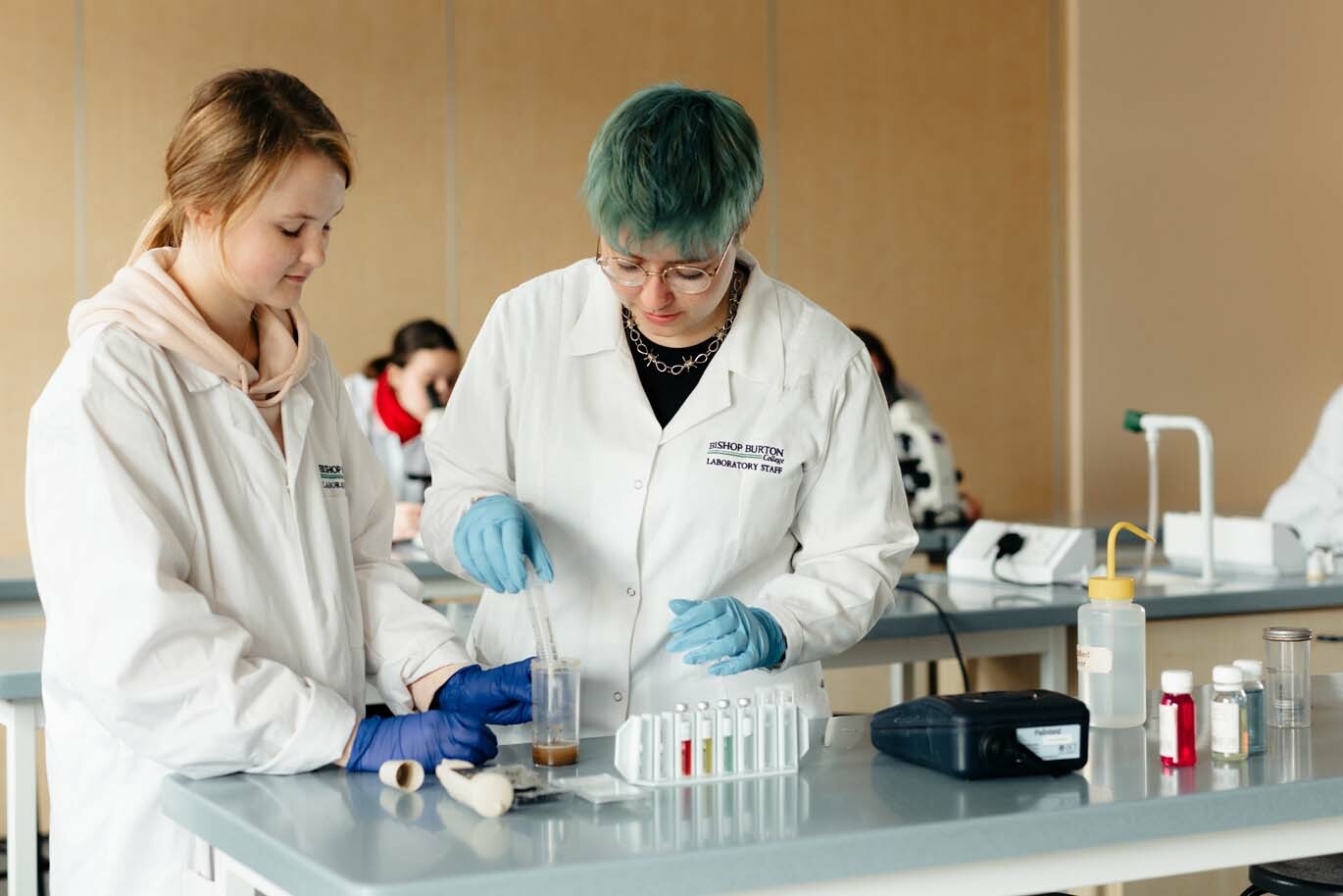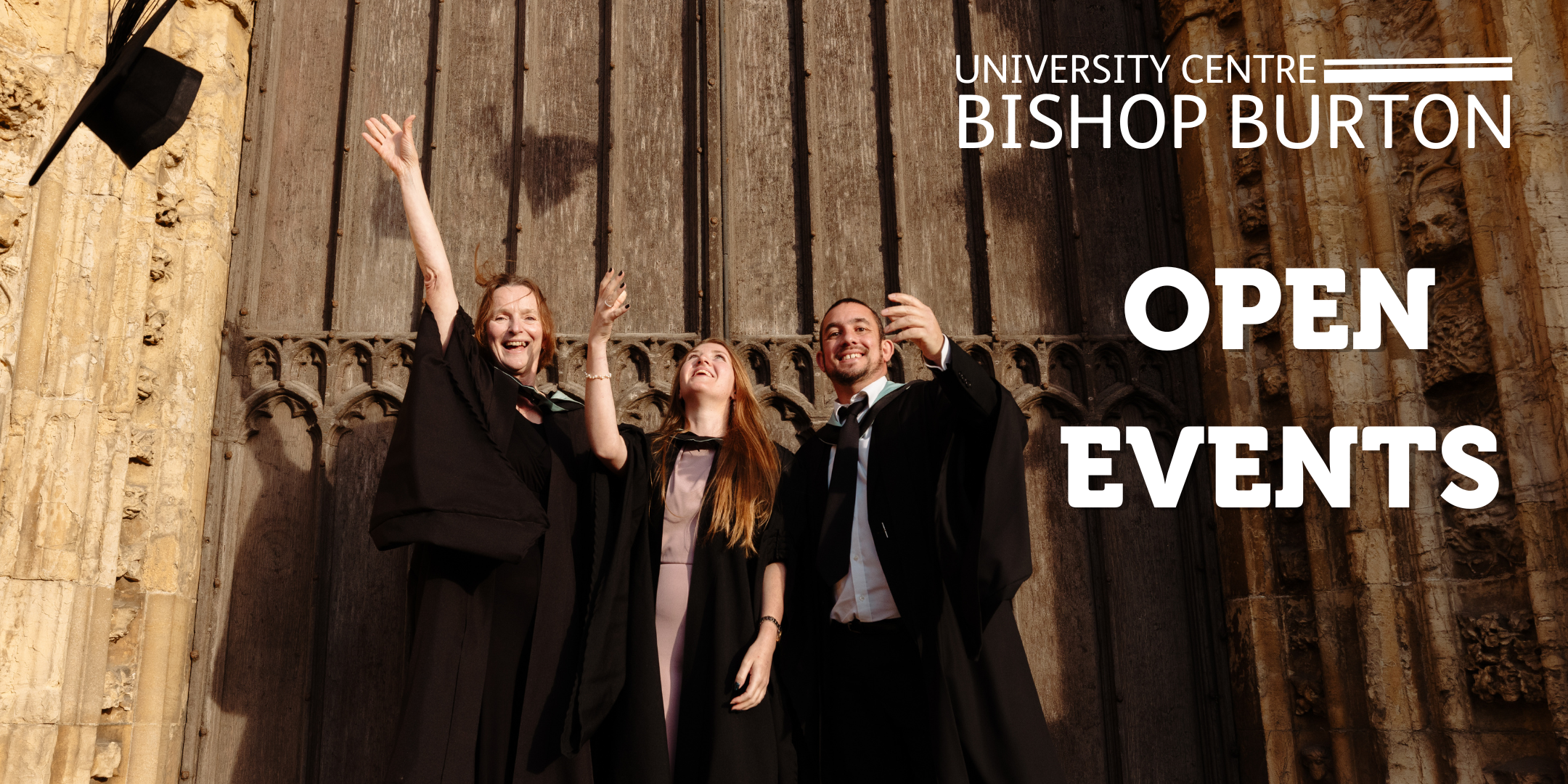
BSc (Hons) Animal Behaviour and Wildlife Conservation
Apply today Enquire about this course Download Course InformationJump to
Subject
Animal Sciences
Level
Bachelors Degree (Level 6)
Study Mode
Full-Time
Duration
3 years full-time
Start Date
September 2026
UCAS Course Code
ABWC
The course
Embark on an exciting journey into the world of animal behaviour and wildlife conservation at University Centre Bishop Burton! This BSc programme offers a unique blend of theoretical knowledge and hands-on experience, designed to inspire and equip the next generation of conservation leaders. Dive deep into the fascinating realm of animal behaviour and adaptation, and discover how behavioural knowledge is essential for effective species conservation.
On this programme, you will develop fieldwork skills through immersive ecological study on our beautiful rural campus and surrounding area. You will also learn practical animal husbandry at our on-site animal management centre, strengthening your understanding of animal behaviour and welfare needs in captivity. Our hands-on and collaborative learning approach ensures you're not just studying animal behaviour and conservation, but actively practicing the skills needed to be successful in this sector.
Key features of the programme include:
Practical skills development in wildlife management and captive animal care
International field trip opportunities to study diverse ecosystems
Research opportunities using state-of-the-art animal management and lab facilities
Join our passionate community of aspiring conservationists and turn your love for animals into a meaningful career. At Bishop Burton, you'll gain the knowledge, skills, and experience needed to make a real difference in conservation, with career routes in captive animal management, wildlife rescue and rehabilitation, ecological consultancy, international conservation biology, and many more. Are you ready to transform your passion into purpose? Apply now and take the first step towards achieving a successful and impactful career in animal behaviour and wildlife conservation!
Course Information
- This programme aims to develop in-depth understanding of animal behaviour across a range of species and contexts
- Diverse modules are designed to equip students with range of practical conservation skills for both captive and wild animal management
- Students will learn how to think critically about global conservation challenges and sustainable solutions
- Independent research opportunities across levels 5 and 6 will build student research skills, with a focus on using behavioural data to inform conservation strategies
- Integration of theoretical knowledge with practical applications in animal welfare and conservation enable students to develop key industry skills
Year 1
- Academic Professional Skills and GIS
- Animal Behaviour
- Introduction to Physiology and Genetics
- Industry Skills
- Principles of Ecology Conservation
- Introduction to Captive Management
Year 2
- Wildlife Rehabilitation and Reintroductions
- Behaviour of Key Species
- Field Studies with Data Analysis
- Independent Project
- Business Project Management
- Welfare Ethics and Legislation
Year 3
- Educational Outreach
- International Conservation Biology
- Welfare Assessments
- Captive Breeding Management
- Final Project
You will need:
A minimum of 96 UCAS points
Plus:
GCSE English 4 or above or equivalent and a suitable reference
UCAS points may be from qualifications such as T Levels, A Levels, BTEC Level 3 Extended Diplomas, Access to Higher Education Diplomas, and City and Guilds Advanced Technical Diplomas amongst others. Please use the UCAS Tariff points calculator to determine the UCAS points value of your qualifications.
Life and/or experience of non-traditional students will be taken into account when considering applications. The successful completion of an entry task may be required when considering applications without the required formal entry qualifications.
If an applicants first language is not English, or a Tier 4 student visa to study is required and GCSE English at grade 4/C or equivalent is not held, they will need to evidence their English language proficiency level, such as International English Language Testing System (IELTS) 6.0 overall (with a minimum 5.5 in each skill).
Advanced entry may be possible due to prior experience or certificated learning; applicants will need to complete the recognition of prior learning approval process.
This programme is delivered with a variety of learning and teaching approaches to include all students learning styles and preferences.
For all modules, theory lectures are delivered that aim to deliver the core content and provide the underpinning knowledge. To complement the theory lectures, you will have group seminars/practical sessions that are used to reinforce concepts delivered theoretically.
The teaching methods focus on facilitating a student centred approach to enhance the independent learning that takes place outside of the classroom.
The full-time route incorporates approximately 9-13 hours of contact time per week, encompassing lectures, seminars, practicals and tutorials. Additional to this time will be final project support sessions in your final year that you can book with your supervisor.
You are also expected to carry out a significant amount of independent study in addition to contact time (approximately 25-30 hours a week). Independent study includes reading around the subject, preparing for tutorials and seminars, and preparing for and completing module assessments. This independent study forms an essential part of your learning journey.
You can expect to receive your timetable during induction week.
- A tablet, laptop or stationery to take notes in lectures and seminars.
- College-branded white laboratory coat.
- College-branded blue kennel coat.
- Appropriate waterproof outdoor clothing and footwear for outdoor practicals.
- Strong steel toe capped boots for practical sessions.
- Roughly £300 to cover the costs of UK-based field trips and visits over the duration of your programme. International field trips are optional and an additional cost.
- The college has a strict policy of not allowing work boots inside college buildings you will need to have alternative footwear (shoes or trainers) to attend lectures and tutorials.
- On successful completion of the programme, you will have the opportunity to graduate at a ceremony wearing formal dress. The hire of the formal dress is an additional cost.
Validated by University of Hull
We are proud to collaborate with University of Hull on the validation of this course.
This includes transforming our programmes to ensure that we meet the evolving needs of the sector, giving you the best opportunities for success when you graduate by having a competence-based focus. Find out more about competence-based higher education.
View the policies and procedures you would be agreeing to comply with by registering for this programme. This encompasses University of Hull Quality and Standards, including a Guide for Collaborative Provision students.
Financial Information
Find the full details of the fees associated with this programme and the financial support available.



